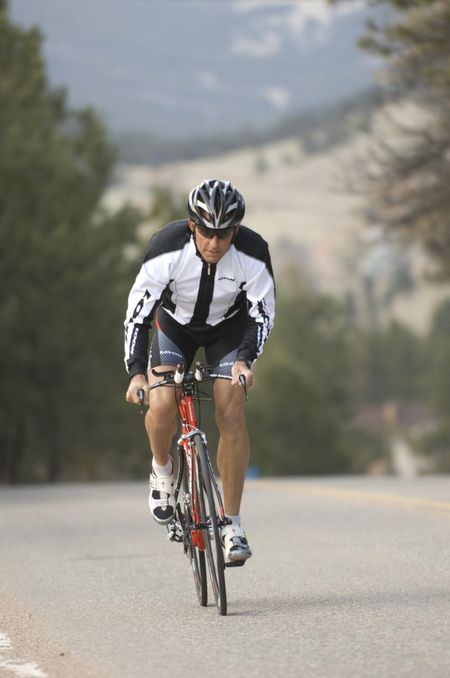
is the ultimate triathlete. This six-time champion is only one of a handful who have won the coveted top spot three times in a row. And although he's no longer racing, he's still in the game. The proof: He guided both winners of this year's race, Craig Alexander of Australia and Chrissie Wellington of the UK. Here's his take on Kona.
–Aileen Torres
Who did you train for Ironman this year?
I served as an adviser for both Craig Alexander and Chrissie Wellington.I’ve worked with Craig on strength and recovery programs for the last year, andChrissie’s complete program for the last three months. I just help keep them ontrack.
What's a training regimen for the race like?
Most amateurs need to put in aminimum of about 13 hours per week–training in each discipline a minimum ofabout three hours per week, plus a strength session–that’s the bare minimum. Thebulk of the athletes train 17 to 23 hours per week. Chrissie and Craig aretraining about 40 hours per week for this race. They train just about everyday, doing about three sessions per day, covering all of the disciplines, plusstrength training.
How did you handle the transition from racer to coach?
Pretty comfortably. I’ve always felt I was a better teacherthan an athlete. I started teaching when I was relatively young. I taught a masterswimmers program when I was 19 and through college. By the time I left school,my program had grown to 400 people. I like the puzzle of putting together aprogram, and in this sport, everyone is unique. You need to understand thenuances of each athlete, and manage overload, progression, and recoverydifferently for each. It’s an intricate web when you’re putting that togetheracross three disciplines for a long period of time. You need to push theathletes sufficiently but allow enough recovery and recoil so they can do itagain. When I was an athlete, I didn’t have a coach–managing myself wasalways a little bit more of an adventure, trying to balance the tenacity with somecommon sense.
I wasn’t surprised at all. I have relationships with bothChrissie and Craig, and I know their work ethics. They were the reigningchampions, and they both repeated, so obviously I’m pleased with the outcome andextremely happy for them. But that doesn’t dilute the accomplishments of theother athletes. The struggle that they both went though to take the race wasinspiring, to overcome such huge levels of physical discomfort. Mirinda Carfraehad a fantastic run. She is someone to watch. ran his best raceever and finished second–everyone respects him. So for Craig and Chrissie towin, it was an extraordinary effort.
What was your best finish at Ironman, and how did you get yourself into topshape for it?
I’d say the six wins were all my best. Most of the time, Idid all three disciplines every day, taking a day off every six to nine days.I’d also strength train three times per week. When I look at the race thatmeant the most to me as an athlete, it was coming in second when I was 40 in1995, after being out of the sport for five years. Finishing fifth in 1996wasn’t anything special on paper, but was a big victory for me personally.
How can we get Americans to care about Ironman again?
I think Americans do care. There are Americans out thereperforming at the highest level. For Americans to win the race again, they haveto have good coaching for a number of years. When I see theAmerican athletes here year in and year out, I don’t see the consistentcy I'dlike to see. So I question the advice and the training they are getting–withthe exception of Chris Lieto. He had an extraordinary day today. He made agreat mark.
Who should we watch for next year?
The most popular annual event took place at Kona on the Big Island of Hawaii Saturday, October 10. 'sAileenTorres covered the race, and she'll be taking a look back at what happened, too. You can check out heraccompanying blog, “Hawaii �����ԹϺ���,” for tips on what to doand where to stay if you're planning to visit.